'With 600 horses under the hood, the M5 that comes in a four-wheel drive avatar has historically been a track car, which means it's not going to be at its spirited best on city streets.'
'But this version, which is the sixth generation, has bits and bobs that do try to make it more compatible for everyday commuting,' says Pavan Lall.
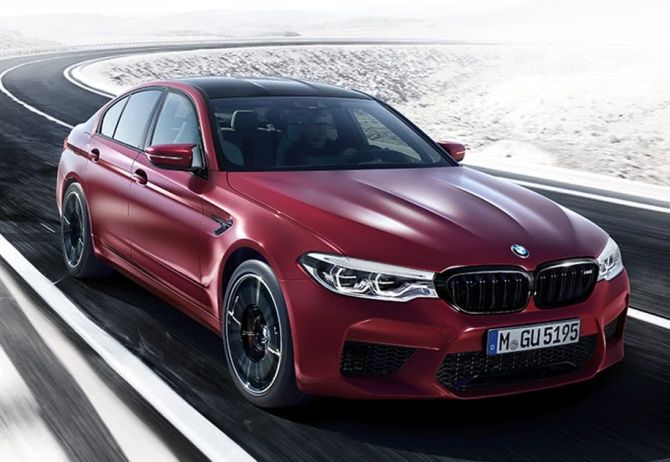
What do you get when you take a sedate looking German sedan, fiddle around with its suspension, throw in dynamic driving modes, paint it in a frozen dark red metallic hue and hook it up to a twin-turbo, eight-cylinder petrol engine? The answer is: a monster.
And that's what the BMW M5 is.
Drive the BMW 7 series, which is known for a comfortable and smooth ride, and it becomes evident that cars such as the M5 are not everyone's cup of tea.
The M5 is the bigger of the performance cars from BMW's stable that also boasts of automobiles such as the M3, which, by the way, is much lighter than the 1,950-kilogramme M5 and a masterpiece of sports car engineering.
Think of the M5 then as a super-sized, beefed-up version of the M3. It's a heavy, substantial car, but one that doesn't feel difficult to drive at any given stage, thereby holding true to its DNA of easy handling.
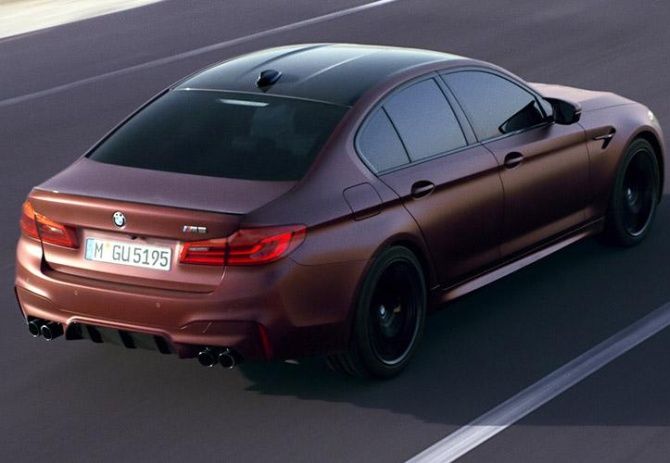
With 600 horses under the hood, the M5 that comes in a four-wheel drive avatar has historically been a track car, which means it's not going to be at its spirited best on city streets.
But this version, which is the sixth generation, has bits and bobs that do try to make it more compatible for everyday commuting. For one, despite the low-slung and rugged suspension, the seats are comfortable and the spongy leather-wrapped steering wheel is easy to get used to.
Second, the large information screen serves as the one-stop window for music, drive modes, all-around cameras as well as for automobile information. It's also easy to tweak and manage.
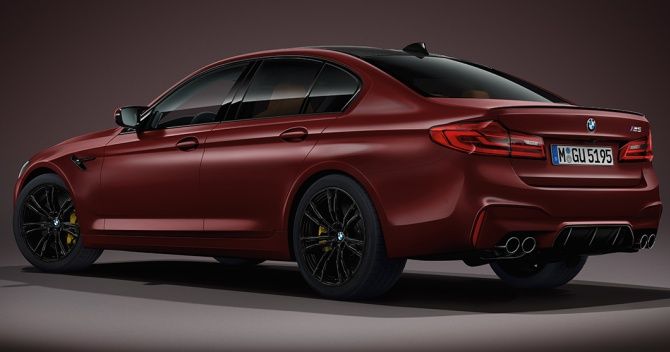
The minute you start the M5, you can hear the rumbling of a supercar's engine throughout the cockpit. Well planted and firm, the ride is sporty all the way, given the 20-inch wheels the car rides on.
Pushed far enough, the car can leap forward and zip into corners in lanes far ahead, something that you can only dream of doing when driving a regular Bimmer.
I tried that while getting on to the Worli-Bandra Sea Link with a small, blue Honda hatchback that was ambling its way to a toll lane.
Calculating the 40-odd metres between it and the pass-through zone, I pushed the M5 on the empty outer lane and in a couple seconds was ahead of two very surprised fellow commuters.
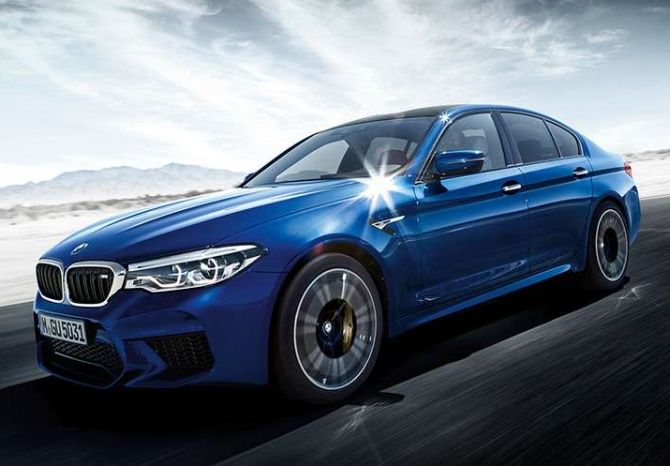
In the rear-view mirror, I could see both the front-seat passengers look stupefied and open-mouthed, as though unable to comprehend what had just happened.
While such manoeuvres aren't recommended, the point is that, for the M5, agility is par for the course.
The car's interiors, with white leather seats emblazoned with "M" near the headrest, light up the 4.4-litre sedan as it rockets raucously from 0 to 100 kmph in 3.5 seconds.
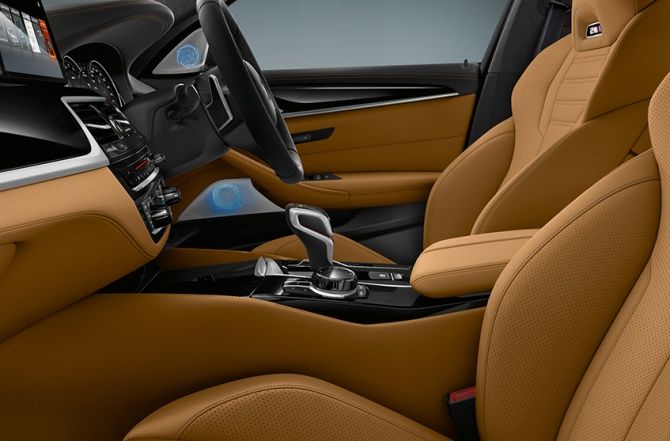
While this thrusts the M5 into the supercar territory, it is important to remember that in busy Indian metros zero to 100 kmph is as unimpressive a metric as the 100 kmph to 200 kmph or 200 kmph to 250 kmph measure, which is really when the thrill of driving such a vehicle kicks in.
The Mumbai-Pune highway or a professional track near Delhi is where you will get the maximum bang for the buck for a rig like the M5.
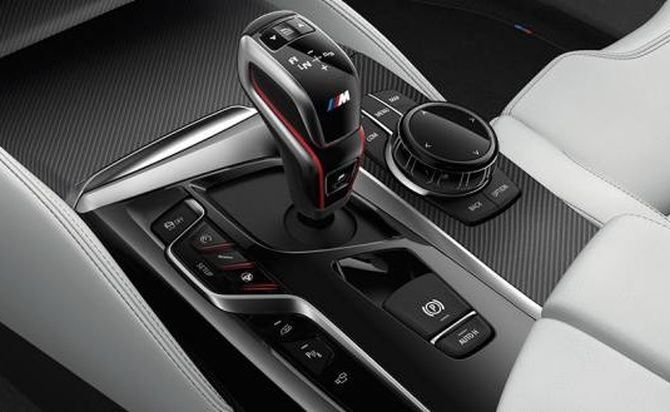
The professional Bowers & Wilkins speakers inside also actually light up when the car is on, giving it a futuristic spaceship feel. While there is no spare tyre in the boot, the trunk is large enough to accommodate plenty of luggage, and the rear seats are more spacious and comfortable than the vast majority of sports cars that serve claustrophobic, cramped benches in the back.
While the popular saying may be that Porsches are the sports cars you can drive every day, the M5 isn't that far behind.
Just remember to take it out to open spaces every now and then, since monsters of every kind have one thing in common: they hate being cooped up.











